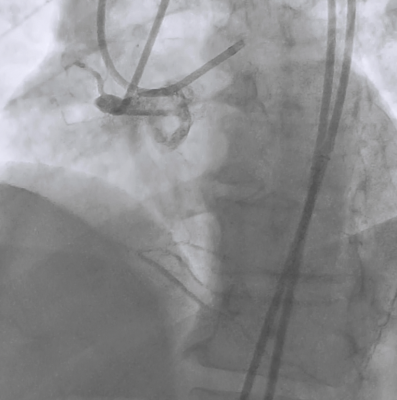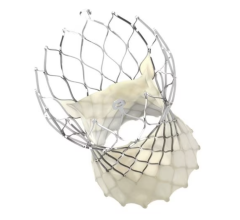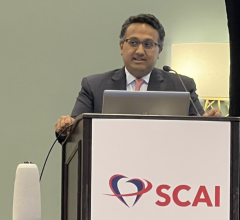
Image courtesy of PROGRESS-CTO
May 20, 2022 — A new analysis of PROGRESS-CTO (PROspective Global REgiStry for the Study of Chronic Total Occlusion Intervention), an international multi-center registry of chronic total occlusion (CTO) percutaneous coronary intervention (PCI), was presented as late-breaking clinical research at the Society for Cardiovascular Angiography & Interventions (SCAI) 2022 Scientific Sessions. The findings show an increase in the success and efficiency of CTO PCI without an increase in major adverse cardiac events (MACE).
Coronary heart disease, a type of heart disease where the heart cannot deliver enough oxygen-rich blood to the heart, is the leading cause of death in the United States (NIH). CTO, or complete blockages of the coronary arteries, is reported in approximately 30% of coronary heart disease patients. PCI is a minimally invasive procedure used to treat narrowing of the arteries in CTO patients.
“CTO PCI is a rapidly evolving technique in interventional cardiology to help treat patients with chronic total occlusion,” said lead investigator, Spyridon Kostantinis, MD, Research Scholar, Center for Coronary Artery Disease at the Minneapolis Heart Institute Foundation. “The PROGRESS-CTO registry offers an opportunity to expand our global knowledge on this treatment option and further build on innovative techniques.”
Utilizing the PROGRESS-CTO registry, researchers examined the clinical and angiographic characteristics and procedural outcomes of 10,249 CTO PCIs performed on 10,019 patients at 40 U.S. and non-U.S, centers between 2012 and 2022.
Findings include:
• Low incidence (2.1%) of in-hospital major adverse cardiac events (MACE) without significant changes over time.
• High prevalence of prior PCI (62%), prior coronary artery bypass graft surgery (29%), and diabetes mellitus (43%) among registry participants.
• Technical success was high (86%) and increased over time, from 81.6% in 2016 to 88.1% in 2021.
• Right coronary artery (53%), followed by the left anterior descending artery (26%) and left circumflex artery (19%) were most common target vessels.
• The target CTOs were highly complex with mean J-CTO score of 2.4 ±1.3 and PROGRESS-CTO score of 1.3 ±1.0.
“Initially, there was a hesitancy towards CTO PCI because of concerns of low success and high complication rates,” said Emmanouil Brilakis, MD, PhD, Chairman, Center for Coronary Artery Disease at the Minneapolis Heart Institute Foundation. “Our registry analysis demonstrates that the opposite is true – higher success rates combined with a low risk of adverse events which can be attributed to increased operator training and real-world experience.”
“The registry contributes to the knowledge base for CTO PCI operators and provides first-hand insights to support physicians training for CTO PCI, which we hope will ultimately increase access to this critical procedure for patients,” said Bavana V. Rangan, BDS, MPH, Program Director, Center for Coronary Artery Disease at the Minneapolis Heart Institute Foundation.
Researchers note a need for increased operator training in order to better serve the large number of patients in need of CTO PCI.
For more information: www.scai.org
Find more SCAI22 coverage here
Read more on CTO Therapies:
VIDEO: New Technology to Treat Chronic Total Occlusions (CTOs) — interview with Farouc Jaffer, M.D., Ph.D., director of coronary interventions at Massachusetts General Hospital
VIDEO: Treating Chronic Total Occlusions — interview with Bill Lombardi, M.D., director of complex coronary artery interventions at the University of Washington


 May 05, 2025
May 05, 2025 









